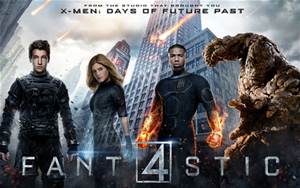
Yes, I said it. Deal with it. For those of you too hipster to get caught up in the excitement of J.J. Abram’s Star Wars movie that is exploding everywhere right now, or too stubborn to ever think that a Star Wars movie could ever be better than The Empire Strikes Back, let me tell you just how wrong you are. I typically wait to make opinions like this until I have seen something on a 40-inch TV screen, rather than a 100-foot mega-screen with surround sound, and also to make sure I am not getting caught up in a prisoner-of-the-moment type situation. (Like when I was a kid and thought that each new Star Trek movie was better than the previous. Whoops.) But after a weekend of pondering, discussing, and reading others’ thoughts on The Force Awakens, I have concluded that the final blockbuster of 2015 (and first of 2016) deserves the top spot in the Star Wars collection.
But let’s be honest here. No one over the age of five would ever think one of the prequels is better than Episode VII. Maybe about 10 percent would argue for Return of the Jedi, followed by about 30-40 percent in favor of Star Wars being better. But an overwhelming number have already concluded that, like Floyd Mayweather, The Empire Strikes Back has remained the indisputable, undefeated champion of the world.
And here is why they would be wrong*…
*NOTE: We will only be dealing with Star Wars and The Empire Strikes Back. Those who believe Return of the Jedi is better have an unhealthy love for Ewoks that needs medical treatment, of which I am not legally allowed to prescribe.
The Director
J.J. Abrams versus Irvin Kershner (Empire) versus George Lucas (Star Wars).
To judge a director, one must look at their full body of work, not just the three Star Wars movies we are discussing. George Lucas has five other movies he directed, three of which are the prequels. ‘Nuff said. The other two, both before Star Wars, are THX 1138 and American Graffiti, which have IMDb scores of 6.8 and 7.5. I bring up the scores here because without doing an exhaustively long, opinionated comparison, fan reviews are the next best way to judge how a movie was received.
Irvin Kershner has directed a dozen or so movies, but I would simply like to take the IMDb scores of his last four (not including Empire). Why four? Because that is the number of movies to Abram’s directing resume. Kershner directed Robocop 2 (5.7), Never Say Never Again (6.2), Eyes of Laura Mars (6.1), and The Return of a Man Called Horse (6.1). How many of those are in your Blu-ray collection?
It’s crazy to realize, but J.J. has only directed four other movies: Mission: Impossible 3, the two latest Star Trek movies, and Super 8. Of those, MI3 received the lowest IMDb score (6.9), with the others receiving scores of 8.0, 7.8, and 7.1. In other words, before The Force Awakens, J.J. successfully resurrected the only other sci-fi series that can even come close to Star Wars, he breathed new life into a spy franchise that John Woo and his pigeons had previously crapped all over and almost ruined, and he made this generation’s E.T.
J.J. Abrams is far and away the best director of the three.
The Cast and Characters
We all know it to be true: Mark Hamill has never been a good actor. In fact, the funniest parts of Star Wars are when he’s whining to his uncle Owen like a little schoolgirl. Hamill is probably the only person alive who liked Hayden Christenson’s performance in the prequels, because he makes Hamill look like an Oscar winner. Even today, if you ask fans of his to talk about what else they have liked him in, they all point to his role as the Joker—that is, the voice of the Joker in an old Batman cartoon.
So between Hamill’s acting and George Lucas’s flat character development given to Luke, we never really care too much about Luke or become anxious to learn more of his backstory. His father fought in the Clone Wars? Okay, whatever that means. Luke has the Force in him? Cool. Let’s see more of this “Force.” But honestly, we don’t really care which of the protagonists uses it. Luke’s dad is Vader? No way! Can we learn more about Vader’s backstory? (That was our mistake to ask that of George Lucas.)
Similar things can be said about Han and Leia. They were certainly likeable characters, but we didn’t leave the theater dying to find out more about them. They made good sci-fi heroes to root for and fun action figures to play with, but not much else. Even the recent talk about doing a young Han Solo movie might be fun, but just because it’s Star Wars. Not because we need to know what a twentysomething Han Solo was doing when he was smuggling for Jabba the Hut. Remember, Han Solo was not the most likeable person when we first meet him, caring more for money than saving Leia.
But the two main heroes of The Force Awakens, Rey and Finn, were written with fantastic depth and played tremendously by Daisy Ridley and John Boyega. Every time Boyega is on screen, his presence demands your attention. He’s doing too much with his expressions to miss him. And Rey, the pseudo–Luke Skywalker character, clearly has a backstory that we are dying to know more of. In fact, I would say that is my only complaint of The Force Awakens, because I fear that all of our speculation for the next year and a half will only lead to disappointment when we (hopefully) learn more about her in Episode VIII. But we certainly care about her and fell in love with her quicker than she called for Luke’s blue lightsaber in her climactic battle with Kylo Ren.
Speaking of Kylo Ren… Anyone else now recognize how flat Darth Vader was as a villain? I absolutely loved seeing Kylo throw temper tantrums as he played the role of the “far from all-powerful” villain. And when Adam Driver took off his mask and reminded us of the human he really is, despite all the evil he was quick to dispense upon others, once again it added a depth to his character that we never saw in Vader, even when we discovered who he was. Kylo Ren is a human, a son, who showed us his internal struggle. For 99 percent of the original trilogy, Vader was more robot than anything else.
The Story
Okay, I understand. Many people are complaining about the similarities in the stories between Star Wars and The Force Awakens. I get it. I saw it right away too. But this was not like The Hangover 2 doing the exact same thing as The Hangover, because they didn’t know how else to pull off another good movie. Director J.J. Abrams, just like the rest of us, was simply a huge fan of the original Star Wars, and I believe he wanted to honor that movie by resurrecting the universe with many similarities to the 1977 movie that has affected multiple generations now in ways that no other movie has even come close to.
And if you do it better, as I have proposed here, then what is wrong with doing it similarly? Hidden plans in a droid? If that droid is the thumbs-up giving BB-8, then awesome! An orphan searching for purpose and meaning to her life? We’ve already concluded how great Daisy Ridley is as Rey, especially when compared to Mark Hamill’s Luke from Episode IV. Going into the next movie, I am more intrigued to learn more about her than about where Luke has been. A giant space station that can destroy planets? Okay, I can agree that the First Order should’ve come up with some other way to menace the galaxy. But it was pretty cool seeing how it took its power from the sun, at least.
But for those too stubborn to leave “Team Empire Strikes Back,” can you tell me what was so great about its story? It began with an incredible battle scene on Hoth, and then… not a heckuva lot else. Luke swings from trees with Yoda on his back. Han can’t ever get the Falcon’s lightspeed fixed. That’s pretty much it until the final act in Cloud City. And even there, we get a decent lightsaber battle but nothing else besides the good guys losing.
Give me the battles, humor, and intriguing characters of The Force Awakens any day.
***
The Force Awakens is certainly not perfect, but no movie is. In fact, that’s one of the things I love about those too stubborn to say something negative about The Empire Strikes Back. You have forgotten its imperfections! Bravo! That is a wonderful characteristic to have. It’s even quite godly, as the Bible tells us that God remembers our sins no more.
And right now, the “sins” of The Force Awakens are still fresh in your mind. But give it time. Go see it again. And again. And again. Watch it on Blu-ray in a few months, followed immediately by your other favorite Star Wars movies. You will see it as I already do.
Join me on the Dark Side, you will.
Kevin Harvey is the author of two books, including the 2015 HarperCollins release All You Want to Know about the Bible in Pop Culture, available at Barnes and Noble, Wal-Mart, Sam’s Club, and Amazon. You can also find him keeping up with the latest goings-on in pop culture on Twitter: @PopCultureKevin



